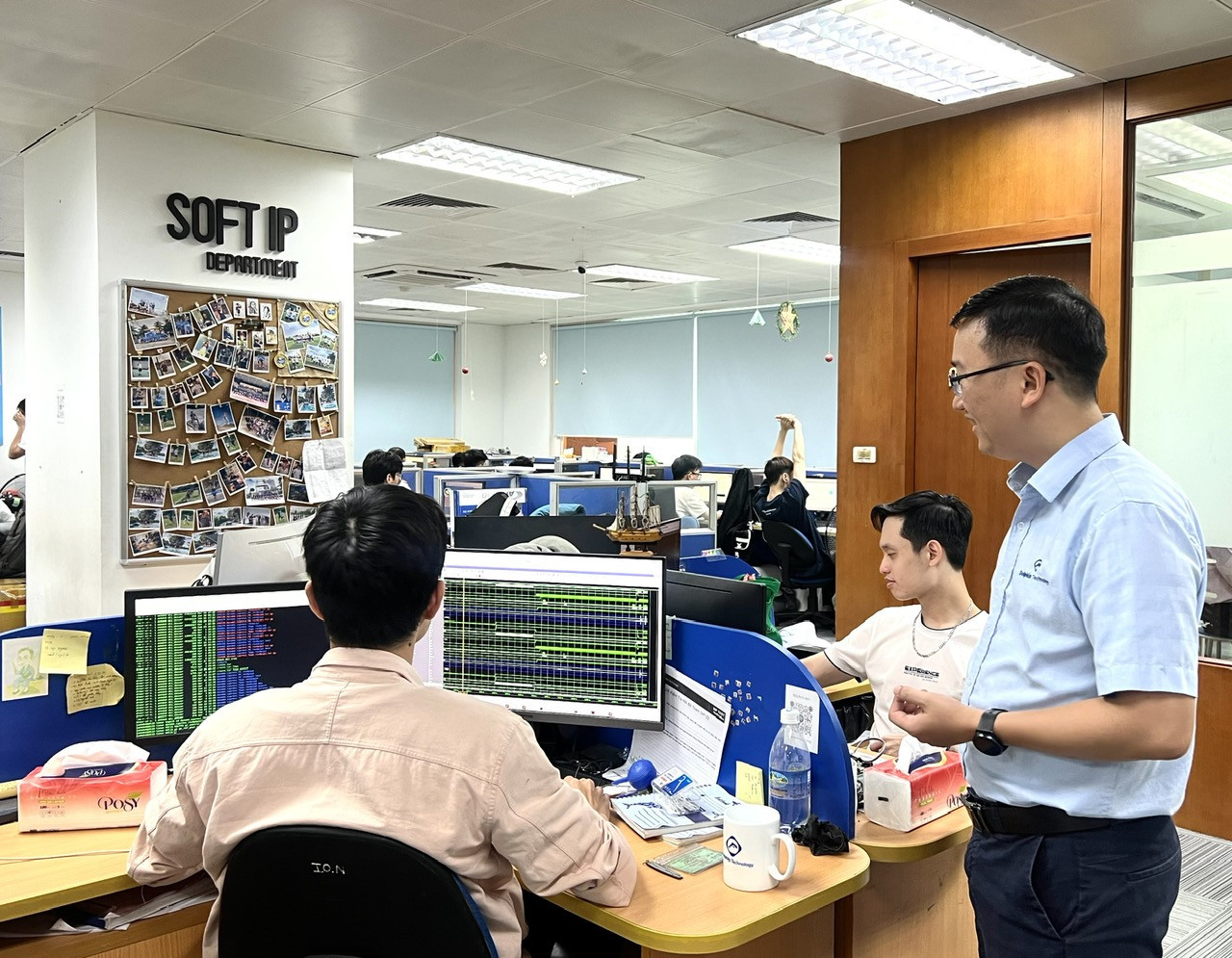
Sixteen years ago, the Hanoi University of Science and Technology (HUST), the leading polytechnic school in Vietnam, did not have an IC design major. Students of the Electronics and Telecommunications Faculty only had lessons related to IC design, such as digital electronics, circuit theory, microprocessing and VLSI (very large scale integration).
One day, Wichip, a Vietnam startup specializing in digital IC design, was established by some overseas Vietnamese experts, and HUST lecturers came to the school to look for interns. Le Hai Anh and some friends were among them.
The group of interns had a chance to access books about chip design with complicated but interesting knowledge. This hurried Anh to work in chip design.
After one year of study and internship, graduating from HUST as an excellent student. Anh became an officer of Wichip.
It was a tough period. Wichip made prototype IC, but it could not find clients, so Wichip’s founders decided to dissolve the company. A group of Wichip engineers, who then were working for a project for US-based Dolphin, was bought by Dolphin and became staff at Dolphin’s office in Vietnam. They included Anh and two others.
Dolphin’s managers realized that the Vietnamese engineers worked well, while the pay for the staff in Vietnam was lower than in the US, so it decided to intensify R&D at the office in Vietnam, recruited more Vietnamese workers, and sent them to the US for training.
In May 2010, Dolphin Vietnam was officially set up, which specialized in providing foundation IPs (Foundation IPs: Stdcell, Memory, IO) and Soft IPs to the companies that make ICs. As the holding company in the US had a lot of projects, Dolphin Vietnam just focused on professional works and it did not have to look for clients.
“In 2010, there were only two companies in the field of IC design, including one company specializing in Power Management IC, or power IC, and Dolphin, which specialized in digital IC,” Anh recalled.
Some young engineers of Dolphin, after a working period, found that the work was difficult and thought that there were not opportunities in the fields, decided to quit.
“In 2014-2015, the global IC market declined and Dolphin Vietnam lacked workers seriously,” Anh said.
To solve the labor shortage, Dolphin Vietnam decided to cooperate with lecturers and universities to produce human resources for the industry.
In 2017, Dolphin Vietnam opened a branch in Hai Phong, joining forces with the Maritime University to enroll students majoring electronics and sent engineers from Hanoi to Hai Phong to give additional training to Hai Phong workers.
From 10 staff on the first days of operations, Dolphin Vietnam now has 200 engineers and interns, a growth rate of 15 percent per annum, including 40 in Hai Phong.
Mastering high technology
Dolphin Vietnam provides on-chip IP designs, which helps microchip engineers reduce product sizes, improve operation effectiveness and optimize the power consumed, thus allowing clients’ products to access the market more quickly.
A chip consists of many small components and the total time to make a completed chip is very long, which may cause chip manufacturers to lose their market opportunities.
The companies providing IP like Dolphin Vietnam can help chip manufacturers shorten the time needed for product development. If they buy Silicon-proven IPs from Dolphin Vietnam and assemble in accordance with technical specs, they can create a chip within one to two years instead of four to five years if they do everything from A to Z.
With initial guidance from American engineers and experience accumulations, Vietnamese engineers now can undertake R&D (research and development), develop Silicon-proven products themselves, and send to the US for commercialization. Now Vietnamese engineers of Dolphin are doing 2NM technology as well.
Great opportunities
Dolphin is one of a few microchip design companies ready to recruit inexperienced workers to produce human resources in the semiconductor industry.
Anh said he hopes that Dolphin Company can not only attract more talent to help the company grow well, but also make a contribution to developing Vietnam into an IC design workforce hub in the region and the world.
“It is feasible for Vietnam to become a semiconductor chip human resource hub of the region and the world. Vietnamese people are capable of doing jobs that require meticulousness, dexterity and intelligence,” Anh said. “A workforce in semiconductors is what developed countries are lacking."
Binh Minh